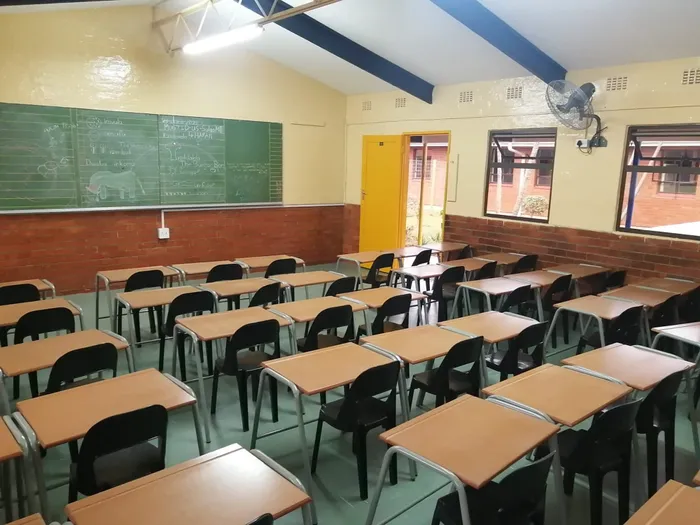
The WCED is now working in partnership with Wesgro
Image: File
As the Western Cape’s learner population surges, the provincial government and its strategic partners are turning to the private sector to meet the growing demand for education.
Edu Invest, a public–private partnership led by Wesgro in collaboration with the Western Cape Education Department (WCED), was officially announced at an education event at the Cape Town International Convention Centre (CTICC) earlier this month.
The initiative aims to attract sustainable private investment into affordable, low-fee schooling across the province.
In the 2024/25 financial year, R390 million in investment has already been secured through Edu Invest, with a further R450 million expected for 2025/26.
“Edu Invest is a public‑private partnership initiative, powered by Wesgro in collaboration with the Western Cape Education Department, with a focus on affordable, low‑fee independent school development,” Wesgro said.
“Investment is directed at developing and scaling affordable school models across the province, particularly in underserved and disadvantaged communities.”
Education MEC David Maynie said he launched Edu Invest, as an innovative public-private partnership initiative.
"This programme aims to attract investment for low-cost private schools, addressing overcrowding and improving access to quality education in the region.”
Maynier highlighted that 94.8% of learners in the Western Cape attend public schools, while just 5.2% are enrolled at independent schools, well below Gauteng’s 14%.
He said: “We need more independent schools because our problem is that we have too few independent schools in the Western Cape.”
He also reinforced the link between education and national development.
“For me, an investment in quality education is an investment in economic growth. If we don’t get education right, we are not going to get economic growth right... job creation right... South Africa, right.”
Five schools were spotlighted, as examples of successful education models, COSAT, APEX Education Group, Claremont High School, Silikamva High School, and Christel House South Africa.
“These included affordable-fee independent schools, a collaboration school, and a no-fee public school, demonstrating how effective partnerships with the private sector can deliver excellent academic outcomes.”
“COSAT in Khayelitsha has demonstrated that academic excellence is possible in a no-fee, school in a township. They achieved a matric Mathematics pass rate of 98.3% in 2024, with 19 candidates earning distinctions for Mathematics. Apex High School delivered a matric pass rate of 95.4%. It can be done.
“Claremont High School has the highest number of admissions applications of any school in the Western Cape, with nearly 5 000 applications so far for 2026.”
Wesgro confirmed that interest from investors is highest in new school infrastructure, teacher development, STEM education, and early childhood development.
“Every form of investment in education plays a role. Edu Invest is designed to bring these different forms of investment together in a way that ensures maximum impact in the communities that need them most.”
Wesgro highlighted that Edu Invest aims to take a broad, province-wide approach to maximise impact.
“The initiative takes a holistic, province-wide approach, identifying opportunities across the education sector where funding can generate meaningful impact.
“This means that additional schools and districts are continuously being assessed for potential support, with the aim of driving both academic success and broader socio-economic benefits.”
They also note strong investor interest in infrastructure.
“At present, the highest levels of investor interest are in the development of new school infrastructure, given the pressing need for additional schools in the province.”
On the other hand, Maynier points to the urgent demand in low-income areas.
“Our key focus is on mobilising investment in additional affordable schooling options for learners in low-income areas, in the form of new schools.”
He further emphasises the diverse nature of investment welcomed.
“We also welcome philanthropic and CSI funding into existing schools, as well as a variety of independent schooling options at various price points.”
Reflecting on the broader need, he explains: “Demand for education is so high in the Western Cape, and admissions pressure so severe, that introducing additional schooling options will help to reduce the burden on existing schools.”